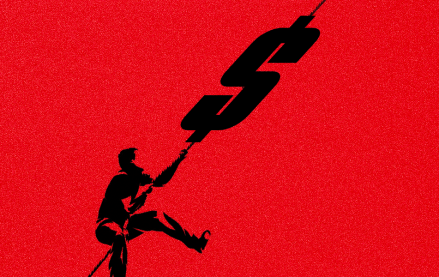After it stopped posting to Facebook, a Danish broadcaster saw its traffic stability improve

Publishers wonder what will happen to their traffic if Facebook drops news from its news feed entirely, as some fear. Danish broadcaster TV Midtvest found out just that when it stopped posting content to Facebook for two weeks in January.
The regional news broadcaster, which gets around 40 percent of its referral traffic from Facebook, ran the test as part of a long-term plan to wean itself off the platform.
Unsurprisingly, the broadcaster saw a 27 percent drop in visitors to its site, a 20 percent drop in sessions and a 10 percent decline in pageviews.
But the readers who remained averaged 42 percent more time within articles and read 12 percent more pages per session than they did prior to the test, according to the broadcaster. Readers also read more articles once fly-by Facebook traffic wasn’t part of the equation. For example, the broadcaster used to post nine to 16 articles or videos a day on Facebook, and usually it was one specific article that would catch fire on Facebook and cause traffic to spike. When it stopped posting to Facebook, traffic was more evenly distributed with each person reading around three to four stories.
“This was an eye-opening test,” said Nadia Nikolajeva, head of digital at TV Midtvest. “I was expecting a far bigger overall drop [in traffic] after stopping publishing to Facebook. We’d become used to traffic being so unstable. But when we took away the Facebook traffic, our traffic became incredibly stable.”
The broadcaster announced the test, which ran Jan. 16-30, on its linear TV channel. At the same time it commissioned four members of the public — a student, politician, entrepreneur and property director — to stop using Facebook for the same two-week period. The aim was to see how they got news when they couldn’t see in the news feed, according to Nikolajeva. During the two-week period, TV Midtvest’s team published interviews with the four test subjects on their experiences. The subjects said they felt more informed when they were limited to getting news from respected publisher sources but missed the interaction with other Facebook users.
Nikolajeva had been mulling going cold turkey on Facebook since last fall, having been frustrated with months of unstable traffic patterns. That, along with a general disappointment with the Facebook Journalism Project, inspired Nikolajeva to think seriously about cutting ties.
As a public service regional broadcaster, TV Midtvest has the luxury of not having to worry about making money from Facebook. Still, Facebook has been a vital driver of traffic, even if most of it tends to be flyby visitors.
TV Midt Vest has resumed posting on Facebook again, but less than before the test, though how many depends on the day, so it couldn’t give an exact number. Facebook announced in January that it plans to promote stories that are shared or engaged with by users, so for now the broadcaster will continue posting stories that are likely to prompt a lot of commenting and sharing on Facebook. But the publisher is also working on ways to cultivate the same kind of engagement on its own platforms.
The broadcaster also may increase its attention to other social platforms such as Apple News. Apple News hasn’t yet offered Danish publishers the chance to sign up officially. However, TV Midtvest saw a spike in two of its own stories being referred from Apple News. In fact, the spike on two main stories occurred during the Facebook-celibacy test.
The two articles that caused the spike in traffic were one about a man being killed after a train raid and another about local supermarkets having to close due to rat infestations. The broadcaster isn’t sure how these two stories managed to drive so much traffic from Apple News, and they eliminated the Apple News-driven figures from its results because those stories were outliers. We asked Apple News for comment; we’ll update if they reply.
Nikolajeva is still mulling how to apply the Facebook experiment to the broadcaster’s social media strategy, but she knows this much: There won’t be any big projects involving Facebook in the coming year.
“It is like relying on a car that doesn’t always start — you would never make a business where you have such an unreliable factor, and I can’t spend money on sponsored posts. So it is not the platform for me,” Nikolajeva said.
More in Media

Walmart rolls out a self-serve, supplier-driven insights connector
The retail giant paired its insights unit Luminate with Walmart Connect to help suppliers optimize for customer consumption, just in time for the holidays, explained the company’s CRO Seth Dallaire.

Research Briefing: BuzzFeed pivots business to AI media and tech as publishers increase use of AI
In this week’s Digiday+ Research Briefing, we examine BuzzFeed’s plans to pivot the business to an AI-driven tech and media company, how marketers’ use of X and ad spending has dropped dramatically, and how agency executives are fed up with Meta’s ad platform bugs and overcharges, as seen in recent data from Digiday+ Research.

Media Briefing: Q1 is done and publishers’ ad revenue is doing ‘fine’
Despite the hope that 2024 would be a turning point for publishers’ advertising businesses, the first quarter of the year proved to be a mixed bag, according to three publishers.








